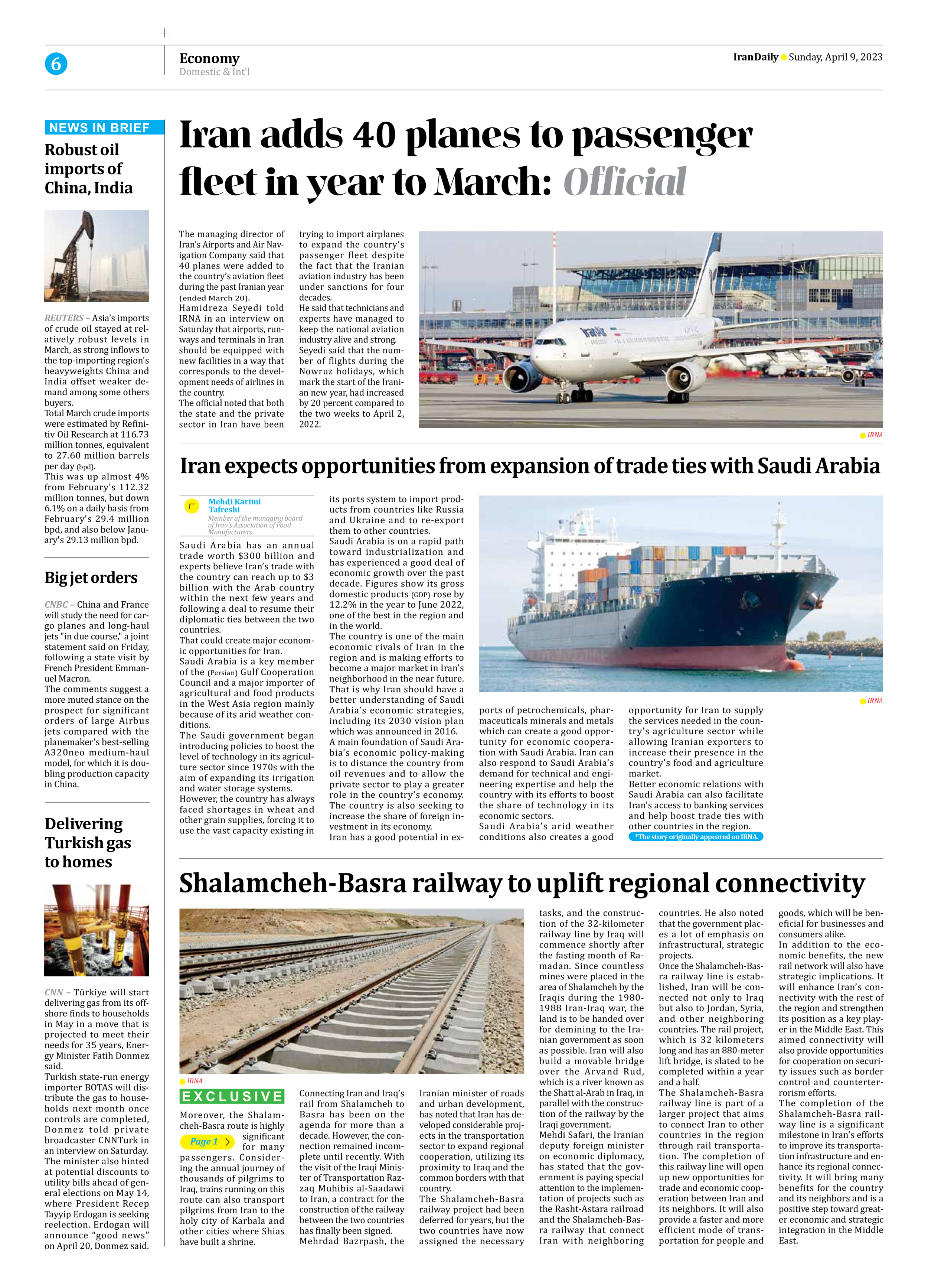
Shalamcheh-Basra railway to uplift regional connectivity
Page 1
Moreover, the Shalamcheh-Basra route is highly significant for many passengers. Considering the annual journey of thousands of pilgrims to Iraq, trains running on this route can also transport pilgrims from Iran to the holy city of Karbala and other cities where Shias have built a shrine.
Connecting Iran and Iraq’s rail from Shalamcheh to Basra has been on the agenda for more than a decade. However, the connection remained incomplete until recently. With the visit of the Iraqi Minister of Transportation Razzaq Muhibis al-Saadawi to Iran, a contract for the construction of the railway between the two countries has finally been signed.
Mehrdad Bazrpash, the Iranian minister of roads and urban development, has noted that Iran has developed considerable projects in the transportation sector to expand regional cooperation, utilizing its proximity to Iraq and the common borders with that country.
The Shalamcheh-Basra railway project had been deferred for years, but the two countries have now assigned the necessary tasks, and the construction of the 32-kilometer railway line by Iraq will commence shortly after the fasting month of Ramadan. Since countless mines were placed in the area of Shalamcheh by the Iraqis during the 1980-1988 Iran-Iraq war, the land is to be handed over for demining to the Iranian government as soon as possible. Iran will also build a movable bridge over the Arvand Rud, which is a river known as the Shatt al-Arab in Iraq, in parallel with the construction of the railway by the Iraqi government.
Mehdi Safari, the Iranian deputy foreign minister on economic diplomacy, has stated that the government is paying special attention to the implementation of projects such as the Rasht-Astara railroad and the Shalamcheh-Basra railway that connect Iran with neighboring countries. He also noted that the government places a lot of emphasis on infrastructural, strategic projects.
Once the Shalamcheh-Basra railway line is established, Iran will be connected not only to Iraq but also to Jordan, Syria, and other neighboring countries. The rail project, which is 32 kilometers long and has an 880-meter lift bridge, is slated to be completed within a year and a half.
The Shalamcheh-Basra railway line is part of a larger project that aims to connect Iran to other countries in the region through rail transportation. The completion of this railway line will open up new opportunities for trade and economic cooperation between Iran and its neighbors. It will also provide a faster and more efficient mode of transportation for people and goods, which will be beneficial for businesses and consumers alike.
In addition to the economic benefits, the new rail network will also have strategic implications. It will enhance Iran’s connectivity with the rest of the region and strengthen its position as a key player in the Middle East. This aimed connectivity will also provide opportunities for cooperation on security issues such as border control and counterterrorism efforts.
The completion of the Shalamcheh-Basra railway line is a significant milestone in Iran’s efforts to improve its transportation infrastructure and enhance its regional connectivity. It will bring many benefits for the country and its neighbors and is a positive step toward greater economic and strategic integration in the Middle East.







